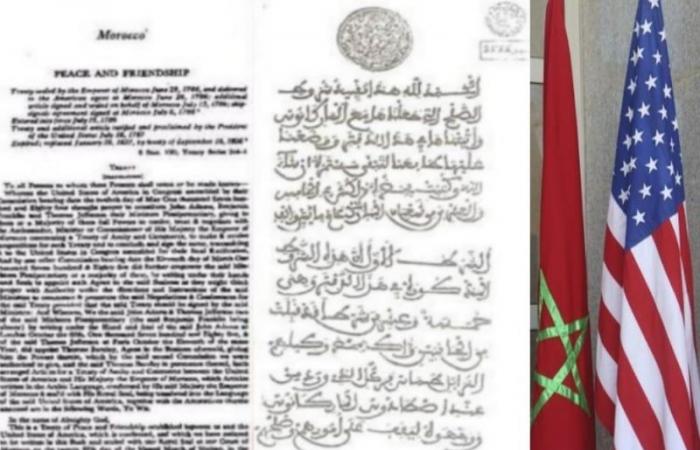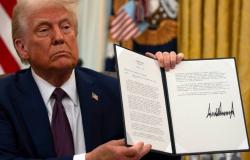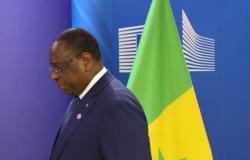For more than two centuries, relations between Morocco and the United States have embodied an exceptional alliance, marked by the “Treaty of Moroccan-American Peace and Friendship”, signed on January 25 in 1786. This treaty, which remains the ‘One of the oldest bilateral agreements still in force is the foundation of political, economic and strategic cooperation which has continued to intensify.
In December 2020, a historic turning point took place with the reconnaissance by the United States of Morocco’s sovereignty on the Sahara, a strategic decision whose ramifications continued, in particular with the return of Donald Trump to the White House in 2025.
Morocco, under the reign of Sultan Sidi Mohammed Ben Abdellah (1757-1790), enjoyed a key geostrategic position between Europe, Africa and the Americas in the 18th century. In 1777, the Moroccan Sultan was the “first head of state in the world” to recognize the independence of the United States, then at war against British domination. This daring gesture reflected the vision of Morocco to establish diplomatic relations with the young emerging nation.
In 1786, after diplomatic exchanges led by Thomas Barclay in the name of George Washington, the “Treatise on Peace and Friendship” was signed. This agreement guaranteed the security of American ships operating in Moroccan waters, protected trade and established an official friendship between the two nations. Raitified in 1787, this treaty is still today a symbol of the longevity of bilateral relations between Rabat and Washington.
Constantly evolving relationship
The treaty served as a framework for stable relations throughout the 19th century, even when Morocco was confronted with the challenges of European colonial expansion. Trade and maritime cooperation remained the pillars of this relationship.
With the Second World War, Morocco, then under French protectorate, played a strategic role in the fight against the axis forces. The “Operation Torch” of 1942, the Allied landing in North Africa, marked the start of sustainable military cooperation between the two nations.
After the independence of Morocco in 1956, Moroccan-American relations intensified, especially during the Cold War. Morocco, under the leadership of Hassan II, became a key ally of the United States, due to its stability and its moderating role in regional crises. Washington supported Rabat in its economic modernization efforts while maintaining close security cooperation.
-Morocco, an essential partner
Over the past two decades, relations between Morocco and the United States have diversified, going far beyond the military aspects. The signing of the free trade agreement in 2004 marked a major step, stimulating trade and promoting American investments in Morocco, especially in the renewable energy and infrastructure sectors.
Recognition of the Moroccanity of the Sahara
On December 10, 2020, under the Trump administration, the United States presented a historic decision by officially recognizing Morocco’s sovereignty over the Sahara. This announcement, praised by Rabat, marked a decisive advance in the Moroccan Sahara file, a key region for regional stability and economic development of North Africa.
With the return of Donald Trump to the White House in 2025, new perspectives open for the Moroccan-American partnership. The Trump administration, known for its pragmatism in terms of foreign policy, will further institutionalize the American recognition of Moroccan sovereignty over the Sahara, by encouraging other countries to adopt a similar position. Washington could also support development initiatives launched by Morocco in its southern provinces, such as special economic zones and infrastructure projects.
On the other hand, Morocco, as a African hub, offers American companies a gateway to the continental market. Trump’s return could accelerate investments in strategic sectors such as green energy, where Morocco asserts itself as a regional leader, as well as agro-industry, digital and port infrastructure.
In a context marked by growing tensions in the Sahel and the Mediterranean, the United States will continue to collaborate with Morocco to fight terrorism and promote regional stability. Morocco, thanks to its intelligence expertise and its strategic position, remains a leading partner for Americans in this struggle.
Morocco could also take advantage of this dynamic to strengthen cultural and diplomatic exchanges with the United States, by highlighting its role as a bridge between the Arab world, Africa and the West.






